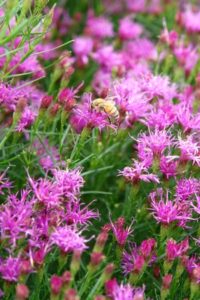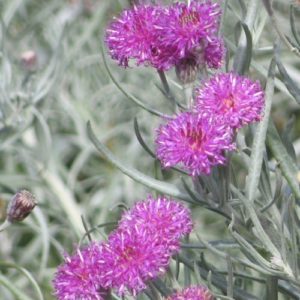Ironweed is a Fabulous Pollinator Perennial
Vernonia. Commonly called Ironweed, this genus includes about 1,000 species of perennials, shrubs and trees native to North America. The plant supposedly gets its common name from the fact that it has tough, erect stems and rusty looking seed clusters as flowers age. Most species can tolerate clay soil. In this feature I will zoom in on perennial Ironweed and five outstanding species sold at garden centers and online. All of these superstars are highly attractive to butterflies.

Vernonia fasciculata. Commonly known as Prairie Ironweed, this gem grows between 3’-6’ tall. It enjoys sun to part sun and starts blooming in mid-summer. This species is a host plant for the American Painted Lady butterfly and is listed by the Xerces Society as having special value to native bees. It is hardy to Zone 3.
Vernonia noveboracensis Commonly known as New York Ironweed, this is a giant, growing to 7’ (or more) where happy. It blooms in late summer and fall. It tolerates wet soil as well as clay. To create a shorter, more compact plant, shear back the stems almost to the ground in late spring (not a typo). Hardy to Zone 5.

